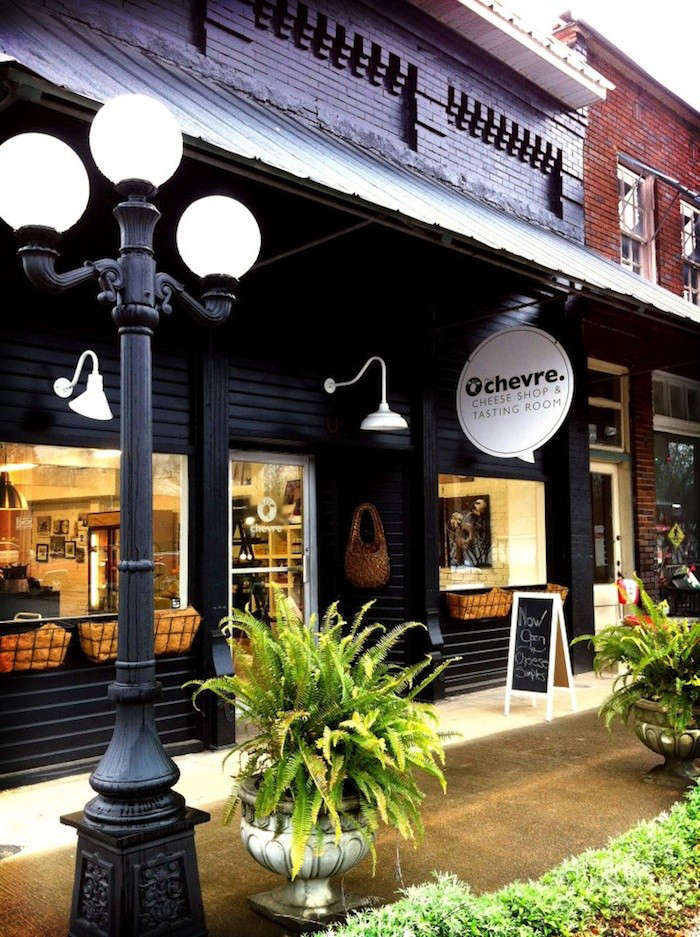Tucked in the town of Elkmont in rural Alabama, Belle Chevre has been making French-style goat cheese for the past 20 years. The award-winning southern artisan goat cheese creamery shares secrets and ingredients in a DIY kit that will turn your kitchen into a creamery.

Above: All you need is goat’s milk (if you don’t have your own herd of goats, most natural groceries, including Whole Foods, have goat’s milk), and the Belle Chevre DIY Goat Cheese Kit includes everything to turn it into delicious cheese: instructions and recipe, citric acid, cheese salt, a food-safe thermometer, a cheese towel, and a storage container. The kit provides enough to made several batches of cheese (up to 10 pounds); $27.95.

Above: A booklet with the recipe, instructions, and tips from the Belle Chevre cheesemakers makes it easy.

Above: The final product. Belle Chevre also offers a DIY Goat Cheese Kit Box for Kids (milk and an adult required), as well as a DIY Honey Goat Cheese Kit; $29.95 each.
What to do with your bounty? I favor a large spoon and a drizzle of honey. Belle Chevre’s owner and chief cheesemaker, Tasia Malakasis, recently published Tasia’s Table, a collection of recipes and stories; $19.96 through Amazon.
Don’t want to get your hands messy? Belle Chevre sells its cheeses online and through retailers nationwide.
Belle Chevre’s all-natural, preservative-free cheeses are handmade and hand-packed. How to choose? Try the American Cheese Society First Place Winner: Chevre de Provence goat cheese medallions in olive oil with herbs; $12.99. Or, Belle Chevre’s Original Spreadable Goat Cheese (Fromage Blanc); $6.99.

Above: After producing cheese at a creamery in Elkmont for 20 years, Belle Chevre opened a cheese shop and tasting room in downtown Elkmont this April. The flagship store not only offers cheese and other artisan foods for sale, but also Saturday suppers, kids’ days, and other special events (note to travel file: I want to try the chevre ice cream).

Above: The company is named after its lead goat, Belle. Belle and all the goats that contribute their milk to Belle Chevre are raised locally, and the mild but distinctive flavor of their cheeses is attributed to the Alabama terrain or “terroir.” The goats roam free and happily; here one has made its way into the shop.
Hungry for cheese? Tour a Cheese-Making Bucolic Farm in Vermont.












Have a Question or Comment About This Post?
Join the conversation (0)